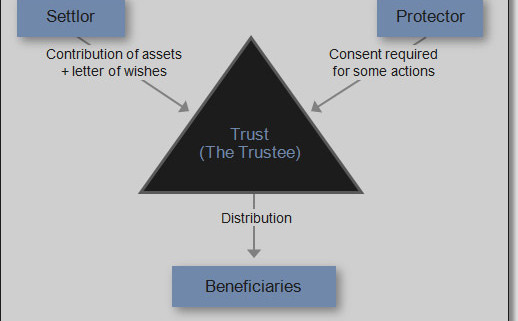What Are The Benefits Of A Revocable Trust?
A revocable trust is a popular estate planning tool that can serve useful property management functions during a client’s lifetime and may also be used as a convenient and efficient means to distribute a client’s assets on his or her death. This article discusses the benefits of using a revocable trust rather than a will or other testamentary instruments such as deeds or transfer on death accounts.
In California, a person may create a revocable self-settled and self-administered trust with very little formality. A revocable trust has various practical effects which impact legal and beneficial rights.
1. Probate Avoidance
The primary advantage of a revocable trust is that probate can be avoided for those assets that are transferred to the revocable trust before the settlor’s death. These assets will not be considered part of the settlor’s probatable estate and, as a result, are not subject to probate proceedings.
Avoiding probate for the trust assets includes the below benefits:
- Avoid Administrative Procedures: These include delivery of notices, court hearings, court approval for sales of property, and the assessment of creditor claims.
- Avoid Probate Fees: These fees can be substantial and include statutory fees as well as extraordinary fees that are commonly granted and can greatly increase the cost of probate. For additional information, How Much Does Probate Cost and Who Pays These Costs?
- Quicker Administration of the Estate: With a trust, the trustee can act generally act quicker than an executor can to administer and distribute the estate independent of probate court supervision. When an estate tax return is not required, a trust can typically be administered in a few months, whereas a probate in California probate estate will generally last a minimum of a year to 18 months.
- Increased Confidentiality: In a probate proceeding, all aspects of the estate and probate are subject to public review. Trusts allow for greater confidentiality of the settlor’s estate plan and the family’s privacy. Because of the notice requirements of Prob C §16061.7, however, this confidentiality in not all-inclusive and a trust may lose some aspects of confidentiality. Even if the terms of the revocable trust may be disclosed to beneficiaries or other persons in a court proceeding, the settlor may arrange for only those portions of the trust that are directly relevant to an inquiry be divulged and that judicial review be conducted in a closed proceeding.
2. Ease of Management
A revocable trust can also be helpful for property management functions. Should the settlor become disabled or incapacitated, a revocable trust can help avoid the costs and inconvenience of formal conservatorship proceedings. A trust will can also provide for long-term management of the settlor’s assets. This management can be virtually uninterrupted by the settlor’s incapacity or death and allow for due care to be applied to high maintenance assets such as businesses, stocks, and any other unique or depreciating asset.
3. Greater Control of Assets
A common manner of transferring property at death include conveyance, deed of gift, agreement, or similar manners. The most common forms of these non-probate transfers include joint tenancy deeds, beneficiary designations on life insurance, and retirement plans such as 401(k), IRA accounts, and pension plans.
However, there is a significant problem with these instruments. These non-probate transfers often do not include contingent beneficiaries. If a beneficiary dies before the transfer, the gift to that beneficiary will fail and will generally revert back to the estate of the decedent, and trigger a requirement for probate. These beneficiary designation generally only allow for designation of one secondary beneficiary. A trust, however, can include a carefully considered plan of distribution which allows for a number of contingencies.
The benefits of a revocable trust largely speak for themselves. But all of these benefits are contingent on having a trust that is well drafted and legally sound. Failure to complete a trust as legally required may void any or all of the positive aspects of having a trust. An experienced attorney can assist in determining if a trust is suitable for your circumstances and help establish an effective and practical estate plan.
The attorneys of Hassell and Hyatt offer free consultations regarding estate planning and revocable trusts. Call us at (916) 900-6206 to schedule your consultation.



